I'm currently reading Leviathan, I haven't finished it but it's really fucking with my mind.
First of all, Celestia is the perfect Hobbsean Sovereign, and it's really fun reading the book as if it's about Her. My takaway from the book, though, is that the primary (only?) purpose of the sovereign is to prevent anarchy, and there's very little a sovereign can do to fuck up that job description.
Further arguments are provided on how resisting the subjugation just makes things shittier for everyone involved.
For a while I had been looking for what my relationship to society should be, and I suppose this is an answer, but oh boy.
He does briefly touch on the subject of outlaws, but it feels a bit dismissive; The only suggestion being a pardon.
If you have any comments on the book, that would help me a lot. I'll also happily explain more about the reasoning beyond my shitty summary, and maybe your skepticism can un-fuck my mind.
/mlpol/ - My Little Politics
Archived thread
>>314822
Is Hobbes the philosopher who says people are naturally good?
Look outside your window for evidence that they are not.
People want to live in a world that's good for them, but they'll only see the value in being good and helping to build and maintain a world that's good for as many good people as possible if they're white enough where it counts.
Absolute dictators are only tolerable if they are inhumanly perfect to an impossible degree. No person or party or bureau can have absolute knowledge of the world and its people sufficient to let them plan an economy that meets the needs of all its people.
If the next Hitler comes along he should have the power necessary to correct Weimar problems and no more. Anyone lesser compared to him should have less power over the individual.
Is Hobbes the philosopher who says people are naturally good?
Look outside your window for evidence that they are not.
People want to live in a world that's good for them, but they'll only see the value in being good and helping to build and maintain a world that's good for as many good people as possible if they're white enough where it counts.
Absolute dictators are only tolerable if they are inhumanly perfect to an impossible degree. No person or party or bureau can have absolute knowledge of the world and its people sufficient to let them plan an economy that meets the needs of all its people.
If the next Hitler comes along he should have the power necessary to correct Weimar problems and no more. Anyone lesser compared to him should have less power over the individual.
Anonymous
No.314846
>>314840
No. Not even vaguely close. Roko’s basilisk is a thinly veiled metaphor for a Christian God who uses Faith as the sole or primary mechanism of salvation. Hobbes was a political philosopher. These things have nothing at all in common.
>>314842
No. Hobbes is often criticized for having an overly cynical view of human nature. He is absolutely not the “philosopher who though humans were good. You are probably thinking of Jean Jacques Rousseau, who was a strong critic of Thomas Hobbes, and was among those to think Hobbes was unjustifiably cynical.
No. Not even vaguely close. Roko’s basilisk is a thinly veiled metaphor for a Christian God who uses Faith as the sole or primary mechanism of salvation. Hobbes was a political philosopher. These things have nothing at all in common.
>>314842
No. Hobbes is often criticized for having an overly cynical view of human nature. He is absolutely not the “philosopher who though humans were good. You are probably thinking of Jean Jacques Rousseau, who was a strong critic of Thomas Hobbes, and was among those to think Hobbes was unjustifiably cynical.
1628202853.jpg (568.6 KB, 800x1276, 800px-Leviathan_by_Thomas_Hobbes.jpg)
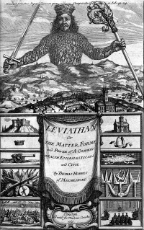
>>314840
The Leviathan is an allegory for political power that represents the concept of the state/socety/commonwealth as an entity made up of all of us (absolute power is rderivative of the consent of the governed). It's a metaphor that illustrates his vision of a perfect government.
The Leviathan is an allegory for political power that represents the concept of the state/socety/commonwealth as an entity made up of all of us (absolute power is rderivative of the consent of the governed). It's a metaphor that illustrates his vision of a perfect government.
>>314848
Pardon, what he said was actually that absolute power of the sovereign was justified by the consent of the governed.
Pardon, what he said was actually that absolute power of the sovereign was justified by the consent of the governed.
>>314849
If people don't consent to being governed, how do they express this? Opting out of taxes? Moving away? Rebellion?
If people don't consent to being governed, how do they express this? Opting out of taxes? Moving away? Rebellion?
>>314867
If the people don't consent, the government must not be just.
How they express it is irrelevant to the allegory, but the fact that they do is notable.
If the people don't consent, the government must not be just.
How they express it is irrelevant to the allegory, but the fact that they do is notable.
>>314871
What of people who don't want to be governed by anyone?
What of people who don't want to be governed by anyone just?
A system that relies on a sufficiently perfect person in charge is a single catastrophic point of failure. Any inefficiency or mistake or sin on the part of a ruler has dire consequences for those he rules. The more freedom people have over their lives, the more decisions good people can take to counteract poor choices made by bad people.
What of people who don't want to be governed by anyone?
What of people who don't want to be governed by anyone just?
A system that relies on a sufficiently perfect person in charge is a single catastrophic point of failure. Any inefficiency or mistake or sin on the part of a ruler has dire consequences for those he rules. The more freedom people have over their lives, the more decisions good people can take to counteract poor choices made by bad people.
>>314877
I can only assume that there's an element of majority-rule involved there, which is why the leviathan is depicted as being made of hundreds of humans.
Point being is that if people are happy and consent to be governed the government must be just, according to Hobb. It's not a perfect theory though. Still, I think maybe st would agree that if most people somehow don't consent to their government, the government must be full of shit.
I can only assume that there's an element of majority-rule involved there, which is why the leviathan is depicted as being made of hundreds of humans.
Point being is that if people are happy and consent to be governed the government must be just, according to Hobb. It's not a perfect theory though. Still, I think maybe st would agree that if most people somehow don't consent to their government, the government must be full of shit.
>>314885
Can people really judge a government based on how many people want to be governed by it?
I guess that means those failing democrat states people are fleeing from en masse are shit, right?
Can people really judge a government based on how many people want to be governed by it?
I guess that means those failing democrat states people are fleeing from en masse are shit, right?
Anonymous
No.314916
>>314909
>people are fleeing from en masse are shit,
That is proof that those state governments are full of shit. People don't even want to live there.
>people are fleeing from en masse are shit,
That is proof that those state governments are full of shit. People don't even want to live there.
Anonymous
No.314917
>>314909
>Can people really judge a government based on how many people want to be governed by it?
I would say that it's a reasonable measure of success. Consent of the governed is usually a good indicator of doing a good job.
Them again, this political theory was published before media/propaganda brainwashing, or importing thousands of immigrants to vote for you, so it may be outdated. Hobb doesn't strongly define what "consent" means though.
>Can people really judge a government based on how many people want to be governed by it?
I would say that it's a reasonable measure of success. Consent of the governed is usually a good indicator of doing a good job.
Them again, this political theory was published before media/propaganda brainwashing, or importing thousands of immigrants to vote for you, so it may be outdated. Hobb doesn't strongly define what "consent" means though.
>>314867
>>314877
>If people don't consent to being governed, how do they express this?
Do you not want to be governed at all, or do you just want others in charge?
The "contract" is very simple, you're either subjugated or you're an anarchist. As in nature the right belongs to the strong, there can be no injustice to anarchists, so prepare to face the strength of the leviathan.
To get others in charge, there are the obvious methods of making the sovereign powerless (murder &c), or if you don't want to break contract, you can convince the sovereign to transfer his power willingly.
>a sufficiently perfect person in charge is a single catastrophic point of failure
(Sovereign refers to the institution, in person or assembly, so it can be pretty much any form you want)
Regardless: Can a sovereign really bring more dire consequences than his absence? In a state of lawnessness, they could at worst be equal, no?
>But to say there is inconvenience, in putting the use of the Soveraign Power, into the hand of a Man, or an Assembly of men; is to say that all Government is more Inconvenient, than Confusion, and Civill Warre.
Despite setting the bar this low, Hobbes does prefer a monarch and spends a fair bit on the comparison. I'll just throw out a few excerpts:
>where the publique and private interest are moste closely united, there is the publique most advanced. Now in Monarchy, the private interest is the same with the publique. The riches, power, and honour of a Monarch arise onely from the riches, strength and reputation of his Subjects. For no king can be rich, nor glorious, nor secure; whose Subjects are either poore, or contemptible, or too weak [etc]
>in a Democracy [...] the publique prosperity conferres not so much to the private fortune of one that is corrupt, [etc]
>the resolutions of a Monarch, are subject to no other Inconstancy, than that of Humane Nature; but in Assemblies, besides that of Nature, there ariseth an Inconstancy from the Number.
>in Monarchy there is this inconvenience; that any Subject, by the power of one man, for the enriching of a favourite or flatterer, may be deprived of all he possesseth; which I confesse is a great and inevitable inconvenience. But the same may as well happen, where the Soveraigne Power is in an Assembly: For their power is the same; and they are as subject to evill Counsell, and to be seduced by Orators, as a Monarch by Flatterers; and becoming one an others Flatterers, serve one anothers Covetousnesse, and Ambition by turnes. And whereas the Favorites of Monarchs, are few, and they have none els to advance but their owne Kindred; the Favorites of an Assembly, are many; and the Kindred much more numerous, than of any Monarch.
>>314877
>If people don't consent to being governed, how do they express this?
Do you not want to be governed at all, or do you just want others in charge?
The "contract" is very simple, you're either subjugated or you're an anarchist. As in nature the right belongs to the strong, there can be no injustice to anarchists, so prepare to face the strength of the leviathan.
To get others in charge, there are the obvious methods of making the sovereign powerless (murder &c), or if you don't want to break contract, you can convince the sovereign to transfer his power willingly.
>a sufficiently perfect person in charge is a single catastrophic point of failure
(Sovereign refers to the institution, in person or assembly, so it can be pretty much any form you want)
Regardless: Can a sovereign really bring more dire consequences than his absence? In a state of lawnessness, they could at worst be equal, no?
>But to say there is inconvenience, in putting the use of the Soveraign Power, into the hand of a Man, or an Assembly of men; is to say that all Government is more Inconvenient, than Confusion, and Civill Warre.
Despite setting the bar this low, Hobbes does prefer a monarch and spends a fair bit on the comparison. I'll just throw out a few excerpts:
>where the publique and private interest are moste closely united, there is the publique most advanced. Now in Monarchy, the private interest is the same with the publique. The riches, power, and honour of a Monarch arise onely from the riches, strength and reputation of his Subjects. For no king can be rich, nor glorious, nor secure; whose Subjects are either poore, or contemptible, or too weak [etc]
>in a Democracy [...] the publique prosperity conferres not so much to the private fortune of one that is corrupt, [etc]
>the resolutions of a Monarch, are subject to no other Inconstancy, than that of Humane Nature; but in Assemblies, besides that of Nature, there ariseth an Inconstancy from the Number.
>in Monarchy there is this inconvenience; that any Subject, by the power of one man, for the enriching of a favourite or flatterer, may be deprived of all he possesseth; which I confesse is a great and inevitable inconvenience. But the same may as well happen, where the Soveraigne Power is in an Assembly: For their power is the same; and they are as subject to evill Counsell, and to be seduced by Orators, as a Monarch by Flatterers; and becoming one an others Flatterers, serve one anothers Covetousnesse, and Ambition by turnes. And whereas the Favorites of Monarchs, are few, and they have none els to advance but their owne Kindred; the Favorites of an Assembly, are many; and the Kindred much more numerous, than of any Monarch.
>>314954
A state of lawlessness is a vacuum unless it is a state artificially imposed by one in power. Absolute lawlessness lets a new ruler take power.
Does the Leviathan allow for sovereign anarcocapitalist city-states?
A state of lawlessness is a vacuum unless it is a state artificially imposed by one in power. Absolute lawlessness lets a new ruler take power.
Does the Leviathan allow for sovereign anarcocapitalist city-states?
Anonymous
No.315015
>>314986
>Does the Leviathan allow for sovereign anarcocapitalist city-states?
City-states are used as examples several times.
No actual mention of anarchocapitalism, but I'd wager it qualifies as a soveraign. (with my limited understanding of ancap, which boils down to there being an NAP. (what's the authorative book on it?)) It's a very interesting case though, I'd love to hear it from someone who actually knows both subjects.
>Does the Leviathan allow for sovereign anarcocapitalist city-states?
City-states are used as examples several times.
No actual mention of anarchocapitalism, but I'd wager it qualifies as a soveraign. (with my limited understanding of ancap, which boils down to there being an NAP. (what's the authorative book on it?)) It's a very interesting case though, I'd love to hear it from someone who actually knows both subjects.
Anonymous
No.319369
>>314822
Here you go, ponyfag.
If you want a better perspective on Leviathan, I recommend reading the chief absolutist Jean Bodin, whose political philosophy helped lay the foundation for many concepts in Hobbes' political philosophy & also Robert Filmer's.
>>319334
NRx objects this, but I still find Hobbes to be an important read from an absolutist perspective.
His view of the body-politic as artificial I think comes from the English politics & their view of the King political and natural body... although from an absolutist perspective, this would be conjoined in one person, having both natural and political unity therein.
His example is that humans aren't like ants in the sense that they always assume obedience and do the best for the political good... but some have pride and stray away politically... I think there is some merit in those observations... And even concedes that the family is a little city, where the father gave propriety to his children (much like Filmer), except that before they had a sovereign father to unite them, they were dispersed. So Hobbes still maintains the absolutist doctrine, that the political and economical are no different...
This is why I recommend reading Jean Bodin. It compliments any other absolutist author like Filmer or Hobbes.
Here you go, ponyfag.
If you want a better perspective on Leviathan, I recommend reading the chief absolutist Jean Bodin, whose political philosophy helped lay the foundation for many concepts in Hobbes' political philosophy & also Robert Filmer's.
>>319334
NRx objects this, but I still find Hobbes to be an important read from an absolutist perspective.
His view of the body-politic as artificial I think comes from the English politics & their view of the King political and natural body... although from an absolutist perspective, this would be conjoined in one person, having both natural and political unity therein.
His example is that humans aren't like ants in the sense that they always assume obedience and do the best for the political good... but some have pride and stray away politically... I think there is some merit in those observations... And even concedes that the family is a little city, where the father gave propriety to his children (much like Filmer), except that before they had a sovereign father to unite them, they were dispersed. So Hobbes still maintains the absolutist doctrine, that the political and economical are no different...
This is why I recommend reading Jean Bodin. It compliments any other absolutist author like Filmer or Hobbes.
Anonymous
No.319370
1631307127_2.png (33.1 KB, 825x222, Plato household like small city.png)

1631307127_3.jpg (169.7 KB, 619x529, Aristotle or Plato household and political.jpg)
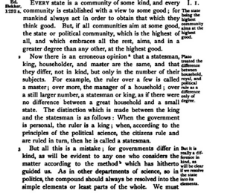
Grace Absolutism series:
https://imgur.com/a/4NgIBbs
Other Grace Infographs:
https://imgur.com/a/AERa2Bm
You will find important information related to the absolutism series parts 7 & 8 in these 2 screencaps. Plato is the 2nd, & 3rd Aristotle. The absolutists agreed with Plato rather than Aristotle. Even in Hobbes, you'll find him criticizing Aristotle and being a little more lenient towards Plato. As Hobbes has said that Plato was the best of the Greek philosophers.
https://imgur.com/a/4NgIBbs
Other Grace Infographs:
https://imgur.com/a/AERa2Bm
You will find important information related to the absolutism series parts 7 & 8 in these 2 screencaps. Plato is the 2nd, & 3rd Aristotle. The absolutists agreed with Plato rather than Aristotle. Even in Hobbes, you'll find him criticizing Aristotle and being a little more lenient towards Plato. As Hobbes has said that Plato was the best of the Greek philosophers.
Anonymous
No.319371
I find Hobbes' political view on the generation of the Leviathan to be very similar to the Juche doctrine, believe it or not. Hobbes was radical, somewhat liberal, in these views that is almost unprecedented. But I think when it comes to judging Hobbes political philosophy, you need more depth than "urrrrgghhh, LIBERALZ, atomization..." & "He takes a non-conservative stance, ugh, on human nature, that men aren't always social." Because you'll find no shortage of non-trad views in Hobbes, being nominalist, egalitarian, popular sovereignty, materialist, anti-Laudian / puts political before ecclesiastical, etc. Otherwise you might not even read Hobbes in the first place.
Anonymous
No.319372
1631308551_4.png (41.4 KB, 612x527, John Bramhall Europe or Asia.png)
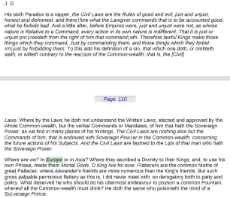
1631308551_5.png (49.4 KB, 596x548, Hobbes response Europe or Asia.png)
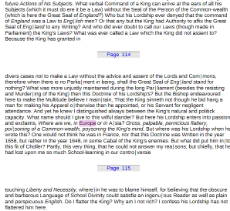
Here are some relevant bits of information to Hobbes' political philosophy & what kind of person he was, and why traditionalists don't like him. After all, Hobbes is usually heralded as the modern political philosopher.
So if you're looking for Medieval LARP or traditionalist views, I wouldn't recommend Hobbes.
A good example is the "Europe or Asia" comment given by Bramhall in the latter screecaps and Hobbes' response.
But if you're not too aversed to the politics of absolutism or modernity, you might be intrigued to read him. But otherwise, you'd say dogshit like aussie anon.
So if you're looking for Medieval LARP or traditionalist views, I wouldn't recommend Hobbes.
A good example is the "Europe or Asia" comment given by Bramhall in the latter screecaps and Hobbes' response.
But if you're not too aversed to the politics of absolutism or modernity, you might be intrigued to read him. But otherwise, you'd say dogshit like aussie anon.
Anonymous
No.319375
These pics matter in a few respects.
1st, no difference between a small state or great household is the absolutist doctrine, like Plato, disagreeing with Aristotle.
2nd, That a statesman, king, dictator, or despot all share the same expertise. It doesn't matter if you have a king, because they have the same expertise as a statesman, each of them a despotic expertise in governing like a household ruler... for absolutists then it isn't just about royalty and whoever wears a crown, but whether it is monarchy, and whether this person rules for life and has a perpetual rule that is supreme and full of majesty.
Otherwise, a limited monarch is no different from limited dictator or limited statesman, if they have not the supreme authority / sovereignty. It's important to understand this perspective, as a monarchist view apart from your regular royalist view, because two kings are not a monarchy, but a diarchy... but contemporary conventions place royalty in view of monarchy regardless of how many kings or even if they are political or apolitical.
So nevermind, who calls who a despot or statesman, they have all the same expertise. An absolutist standpoint is that while you have a tyrant, no less than any statesman or king, the form of government still has benefits that might outweigh whether this is a king, statesman, or whatsoever... seeing as how monarchy has unique benefits itself regardless if there is a statesman or king.
1st, no difference between a small state or great household is the absolutist doctrine, like Plato, disagreeing with Aristotle.
2nd, That a statesman, king, dictator, or despot all share the same expertise. It doesn't matter if you have a king, because they have the same expertise as a statesman, each of them a despotic expertise in governing like a household ruler... for absolutists then it isn't just about royalty and whoever wears a crown, but whether it is monarchy, and whether this person rules for life and has a perpetual rule that is supreme and full of majesty.
Otherwise, a limited monarch is no different from limited dictator or limited statesman, if they have not the supreme authority / sovereignty. It's important to understand this perspective, as a monarchist view apart from your regular royalist view, because two kings are not a monarchy, but a diarchy... but contemporary conventions place royalty in view of monarchy regardless of how many kings or even if they are political or apolitical.
So nevermind, who calls who a despot or statesman, they have all the same expertise. An absolutist standpoint is that while you have a tyrant, no less than any statesman or king, the form of government still has benefits that might outweigh whether this is a king, statesman, or whatsoever... seeing as how monarchy has unique benefits itself regardless if there is a statesman or king.
Anonymous
No.319376
What anon also mentions about pre-societal individuals is that Hobbes' doctrine of individualism is also related to Monarchy, since the form of Monarchy is about the pre-eminent rule of one individual person. As the Hobbesian political philosophy starts with one natural man, and later the artificial person of the body-politic... the discussion of aversions and appetites, is also related to the friend / enemy distinction that Carl Schmitt gives to the state... Like the natural man, the artificial man might also have the qualities.
How could I explain this... Traditionalists have a two-sided view of Monarchy... that rivals the fact that Monarchy is the government of a supreme individual, pre-eminent, but also manifest as a public power... and while being the exception to the private individual, the monarch is yet individual, and this undivided unity of the monarch is also its greatest benefit. As Hobbes says, the Monarch's private interest is also re-aligned with the public interest, and where public and private interest meet in synergy is where you have a common good. So King James VI & I says, Woe unto him who separates the weal of the Kingdom from the King... and Bossuet adds, that they who separate the interest of the King from the State are no more than public enemies...
Let me continue about why the individual nature of Monarchy matters, and why conservatives might be juxtaposed to it despite their appraisal of royalism... When aussie anon says that Man is societal, he should also recognize the origin of that from Aristotle, where Hobbes criticizes... Aristotle says, that the STATE comes prior to the Individual and the Family... that the WHOLE comes prior to the PART... that a human body must come before there are hands and legs and heads and other appendages... Thomas Hobbes understood this very well, as Aristotle said that man separated from human society must be a GOD or a BEAST. BUT that Man who is so pre-eminent to be the Great Founder of the state, and establish wisdom and justice and teach men, is also pre-eminent, and isn't merely a part, but has the pre-eminence of the whole in comparison to the part, and has the whole power of the state invested in him... so the pre-eminent Monarch is compared to a God... and that's why Aristotle says, "What did the mouse say to the LION?" Think of the Egyptian sphinx, to better understand the Leviathan, and how Aristotle talks about GOD or BEAST... and the pyramid and its whole... these are important ideals of Monarchy, and about the individual nature, that an individual man, one person above thousands, must be pre-eminent simply because he was an individual whose person became associated with the greater whole. So that's how it ties into individuality...
The conservatives rap about society, and their aversion of Monarchy is sometimes understood when the Monarch is an individual, like Nebuchadnezzar, as his Bible story had him walk with the animals, aka like a beast, and this is what conservatives fear about Monarchy, and won't accept in the individualist nature of the Monarch -- except, the individual nature is also tethered to the pre-eminence of this state and why it is likened to God. The Leviathan is hated by traditionalists no less than Frankenstein's monster, because like with Caligula whose aspirations were towards Monarchy, he assumed unto himself a great power, that was disdained by conservatives... that they associate with Monarchy as Monstrous. Hobbes Leviathan was said to be part-Man, part-God, part-Animal, Part-Machine... So Monarchy is by all means and forms, really monstrous in one way or another, because of the sheer pre-eminence and scale, even in modest royal states, because it is with great disbelief we'll see the whole state united in one person, and disbelief that one man truly rules over many... that same skepticism repeated by conservatives, because it is so hard to believe, that one man truly rules, but the pre-eminence of monarchy is so extraordinary and great, so magnificent, it obviously would be, and it's no wonder that on paper it is like a god among men, and why the state of monarchy is compared to God, if not for the fact that one person rules above thousands... as Louis XIV says, "I am the State" or "Nec Pluribus Impar" not unequal to many... not unequal to thousands... the pre-eminent Monarch humbles an entire population.
How could I explain this... Traditionalists have a two-sided view of Monarchy... that rivals the fact that Monarchy is the government of a supreme individual, pre-eminent, but also manifest as a public power... and while being the exception to the private individual, the monarch is yet individual, and this undivided unity of the monarch is also its greatest benefit. As Hobbes says, the Monarch's private interest is also re-aligned with the public interest, and where public and private interest meet in synergy is where you have a common good. So King James VI & I says, Woe unto him who separates the weal of the Kingdom from the King... and Bossuet adds, that they who separate the interest of the King from the State are no more than public enemies...
Let me continue about why the individual nature of Monarchy matters, and why conservatives might be juxtaposed to it despite their appraisal of royalism... When aussie anon says that Man is societal, he should also recognize the origin of that from Aristotle, where Hobbes criticizes... Aristotle says, that the STATE comes prior to the Individual and the Family... that the WHOLE comes prior to the PART... that a human body must come before there are hands and legs and heads and other appendages... Thomas Hobbes understood this very well, as Aristotle said that man separated from human society must be a GOD or a BEAST. BUT that Man who is so pre-eminent to be the Great Founder of the state, and establish wisdom and justice and teach men, is also pre-eminent, and isn't merely a part, but has the pre-eminence of the whole in comparison to the part, and has the whole power of the state invested in him... so the pre-eminent Monarch is compared to a God... and that's why Aristotle says, "What did the mouse say to the LION?" Think of the Egyptian sphinx, to better understand the Leviathan, and how Aristotle talks about GOD or BEAST... and the pyramid and its whole... these are important ideals of Monarchy, and about the individual nature, that an individual man, one person above thousands, must be pre-eminent simply because he was an individual whose person became associated with the greater whole. So that's how it ties into individuality...
The conservatives rap about society, and their aversion of Monarchy is sometimes understood when the Monarch is an individual, like Nebuchadnezzar, as his Bible story had him walk with the animals, aka like a beast, and this is what conservatives fear about Monarchy, and won't accept in the individualist nature of the Monarch -- except, the individual nature is also tethered to the pre-eminence of this state and why it is likened to God. The Leviathan is hated by traditionalists no less than Frankenstein's monster, because like with Caligula whose aspirations were towards Monarchy, he assumed unto himself a great power, that was disdained by conservatives... that they associate with Monarchy as Monstrous. Hobbes Leviathan was said to be part-Man, part-God, part-Animal, Part-Machine... So Monarchy is by all means and forms, really monstrous in one way or another, because of the sheer pre-eminence and scale, even in modest royal states, because it is with great disbelief we'll see the whole state united in one person, and disbelief that one man truly rules over many... that same skepticism repeated by conservatives, because it is so hard to believe, that one man truly rules, but the pre-eminence of monarchy is so extraordinary and great, so magnificent, it obviously would be, and it's no wonder that on paper it is like a god among men, and why the state of monarchy is compared to God, if not for the fact that one person rules above thousands... as Louis XIV says, "I am the State" or "Nec Pluribus Impar" not unequal to many... not unequal to thousands... the pre-eminent Monarch humbles an entire population.
Anonymous
No.319378
1631311732_1.jpg (178.2 KB, 1024x768, 3dbb70c669cb91067d25fc4a7f50ca48847a6c7ed92ce5bb2413678701161286.jpg)
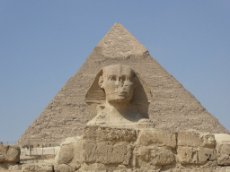
1631311732_3.mp4 (3.0 MB, Resolution:640x360 Length:00:00:32, LouisXIV Bossuet.mp4) [play once] [loop]
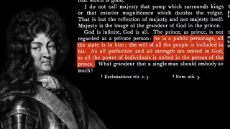
So Monarchy is Monstrous, has awesome power and the pre-eminence of a Monarchic individual is like a pre-societial individual that first founded the State, that Aristotle called the greatest of benefactors... This is why Thomas Hobbes alludes to in his Leviathan, in its generation, and its manifestation in the natural person of a sovereign monarch... Power that is immense, tyrannical, great, absolute, resembling the status of the whole to the part, having the strength of the entire body-politic and people united in one person.
The Sphinx is like the Leviathan in being a cross-hybrid, between God, Man, or Beast, and the pyramid in this image I'd say resembles the pre-eminence of the Whole... If you look at the front cover of Leviathan, you'll understand a few things: 1st, the Leviathan cover has a perfect triangle, between the Sword of Commonwealth and the Crosier, meaning protection and mastery of doctrine, with the Head... Hobbes said, that the Sovereign is the SOUL of the Commonwealth, not merely the Head, and why? Because like Aristotle mentioned, Hobbes sought the pre-eminence of the Whole in relation to the Part... Absolutists call this the relationship between general and particular... and associate it strongly with Sovereignty or Majesty... In the absolutist mythos, the Monarchy started out Despotic or Tyrannical, with Lordly Power, like William the Conqueror or the Roman Patriarch, and became Royal over-time, but still held the Power of Life and Death, the sole basis of absolute power being from the Pater Familias doctrine of the Romans that gave the Fathers of Families absolute power of life and death, the state of monarchy being like a household, no different political/economical (as economic means household) means that the political monarch is the father of his people, has the power of life and death...
The Sphinx is like the Leviathan in being a cross-hybrid, between God, Man, or Beast, and the pyramid in this image I'd say resembles the pre-eminence of the Whole... If you look at the front cover of Leviathan, you'll understand a few things: 1st, the Leviathan cover has a perfect triangle, between the Sword of Commonwealth and the Crosier, meaning protection and mastery of doctrine, with the Head... Hobbes said, that the Sovereign is the SOUL of the Commonwealth, not merely the Head, and why? Because like Aristotle mentioned, Hobbes sought the pre-eminence of the Whole in relation to the Part... Absolutists call this the relationship between general and particular... and associate it strongly with Sovereignty or Majesty... In the absolutist mythos, the Monarchy started out Despotic or Tyrannical, with Lordly Power, like William the Conqueror or the Roman Patriarch, and became Royal over-time, but still held the Power of Life and Death, the sole basis of absolute power being from the Pater Familias doctrine of the Romans that gave the Fathers of Families absolute power of life and death, the state of monarchy being like a household, no different political/economical (as economic means household) means that the political monarch is the father of his people, has the power of life and death...
Anonymous
No.319381
1631313772_1.png (10.3 KB, 329x292, Bodin every and particular 02.png)
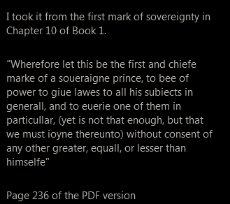
1631313772_2.png (29.7 KB, 1895x339, Bodin every and particular 01.png)

Two screencaps related, are also important from Bodin's political philosophy to Hobbes. The general & particular, and the superiority. This is related to pre-eminence, or whole in relation to the part, where the sovereign monarch holds claim to majesty... as there is no majesty without pre-eminence or having sovereign power of the general to the particular. If you read Hobbes' screencap about how the King is the People, you'll see that the King has the relationship of the general to the particular... in this distinction between the People and the Multitude. The People is having one will, and manifest through one man, holds the total 100% strength of the body-politic, aka the whole... but the Multitude is inferior... so while there might be a great number of people amassed in protest, they aren't considered the whole people...
Hobbes also states, that their Unity is more than concord when considering the body-politic... the Leviathan is the true unity of them all. If you look at the body of the Leviathan, it is made of people. This is the chief political view of Hobbes, and by political I mean the Polis, or City, that is usually referred to as the State, very different from the libertarian view of a state... as the People and the City and themselves build up the State, are conjoined and form the arms and strength, people united in a body-politic... They usually phrase society and government as if they didn't coincide in one true unity of the Leviathan, that's what I would stress as a slight difference.
Hobbes also states, that their Unity is more than concord when considering the body-politic... the Leviathan is the true unity of them all. If you look at the body of the Leviathan, it is made of people. This is the chief political view of Hobbes, and by political I mean the Polis, or City, that is usually referred to as the State, very different from the libertarian view of a state... as the People and the City and themselves build up the State, are conjoined and form the arms and strength, people united in a body-politic... They usually phrase society and government as if they didn't coincide in one true unity of the Leviathan, that's what I would stress as a slight difference.
Anonymous
No.319383
1631314607_1.mp4 (17.9 MB, Resolution:640x360 Length:00:03:23, North Korean Moranbong Band One great family - Uma grande família - 하나의 대가정.mp4) [play once] [loop]

The Leviathan cover is important to also understand for the City below, and the Leviathan above. It is parallel to the idea, "As above, so below," and I don't bring that up to be an esotericfag. It's just that if you understand the City is the State, and how the People are the State... are extraordinary ways of viewing the state that nobody really thinks of anymore... even Aristotle considered the family as part of the state, in ways nobody considers... and Bodin re-iterates Plato, that there is no difference between a great household and small state. The church itself in the city is seen as a building in the city, and that the Leviathan holds the Sword of the Commonwealth and Shepherd's Crosier... This is compared to the temporal / spiritual distinction, that Hobbes denies, and believes both are important to be united in the Sovereign... as the Sovereign is also master of doctrines, needs to lead his people and teach them, and the political good comes first before the clericals should rival themselves to political authority.
How does Hobbes & North Korea succeed, then, where the conservatives and clericals fail? In putting politics first in their view, there is success where conservatives vainly talk about morality, seeing as how no morality is manifest without it being politically manifest and supported... it is otherwise a private convention and weak... The conservatives who juxtapose the Family against the Political Good are in error, for as Bodin says the true image of the Commonwealth is the family itself, and that there is no benefit for families if they cannot all benefit as a great family. To separate the family from the political, then, means denying the quintessential matters of morality even, because if there is no political foundation for morality, then what gives about honoring your Father or your Mother? If the political view isn't realized, then all the conservatives talk about the family and morality amount to nothing.
"So that you may be the readier to defend the Constitution, know this: for all who have preserved their fatherland, furthered it, enriched it, there is in heaven a sure and allotted abode, where they may enjoy an immortality of happiness." -Cicero
"For nothing happens in the world more pleasing to that supreme Deity, who governs all the universe, than those gatherings and unions of men allied by common laws, which are called states. From this place do their rulers and guardians set out, and to this place do they return." -Cicero
"Exercise this soul in the noblest activities. Now the noblest are cares and exertions for our country's welfare." -Cicero
"Plato himself is for a Divine Power assisting in Human Politics… 'tis a remarkable passage that of his in his Meno. "We may as properly call Governors, or States-men, Divine, as we call those who give out the Oracles, or Prophets or Poets by that name; and we may affirm, that they have a Divine Illumination, and are possessed by the Deity, when they consult for the good of the commonwealth" –William Nichols
How does Hobbes & North Korea succeed, then, where the conservatives and clericals fail? In putting politics first in their view, there is success where conservatives vainly talk about morality, seeing as how no morality is manifest without it being politically manifest and supported... it is otherwise a private convention and weak... The conservatives who juxtapose the Family against the Political Good are in error, for as Bodin says the true image of the Commonwealth is the family itself, and that there is no benefit for families if they cannot all benefit as a great family. To separate the family from the political, then, means denying the quintessential matters of morality even, because if there is no political foundation for morality, then what gives about honoring your Father or your Mother? If the political view isn't realized, then all the conservatives talk about the family and morality amount to nothing.
"So that you may be the readier to defend the Constitution, know this: for all who have preserved their fatherland, furthered it, enriched it, there is in heaven a sure and allotted abode, where they may enjoy an immortality of happiness." -Cicero
"For nothing happens in the world more pleasing to that supreme Deity, who governs all the universe, than those gatherings and unions of men allied by common laws, which are called states. From this place do their rulers and guardians set out, and to this place do they return." -Cicero
"Exercise this soul in the noblest activities. Now the noblest are cares and exertions for our country's welfare." -Cicero
"Plato himself is for a Divine Power assisting in Human Politics… 'tis a remarkable passage that of his in his Meno. "We may as properly call Governors, or States-men, Divine, as we call those who give out the Oracles, or Prophets or Poets by that name; and we may affirm, that they have a Divine Illumination, and are possessed by the Deity, when they consult for the good of the commonwealth" –William Nichols
Anonymous
No.319388
1631316773_2.png (118.2 KB, 1027x586, Bodin praises Monarchy united command over Oligarchy & Popular state.png)

1631316773_3.png (106.9 KB, 1020x611, Bodin praises Monarchy over Oligarchy & Popular 03.png)

1631316773_4.mp4 (6.8 MB, Resolution:640x360 Length:00:03:58, Excision - X Rated.mp4) [play once] [loop]

That said, lastly, I also suppose Hobbes borrows the notion of Lordly Monarchy from Jean Bodin, and applies it to his distinction between despotical and institutional sovereignty, that the former is by fear of the sovereign, but the latter by fear of each other... Bodin talks about the formation of a Dictator in a similar fashion, that the fearful fathers fled and summoned a Dictator, revered him like a god, and the fear of him kept enemies at bay... and like Bodin / Plato, said that the sovereignty is the same in both, despotical and institution, and that both consent... that it is the same expertise...
My personal warning to anyone interested in Monarchy or Absolutism is also that conservatives will always at best be simps for multi-party democracy, even with the traditionalist makeup they put on, no matter the talk about the Enlightenment or Liberalism, as they only fetishize being the conservative counter-part to the Liberal, only care to be the other end of the political party. No less partial to mutli-party democracy when they talk about the Middle Ages and Feudalism romatically, because they favor the same principles of stagnation and division as found in multi-party democracy, no less, applied to a previous time period, as if the Disciples should be Christ's worst enemy, they talk about nobles no better than multi-parties, like Carl Schmitt once said of indirect powers, of the church and nobles, searching to stagnate and obfuscate... no matter how much the conservative or traditionalist talks about democracy, they will always be for multi-party democracy at heart. Let alone will conservatives ever bear or tolerate the pre-eminence of Monarchy, especially if it means going beyond multi-party democracy.
My personal warning to anyone interested in Monarchy or Absolutism is also that conservatives will always at best be simps for multi-party democracy, even with the traditionalist makeup they put on, no matter the talk about the Enlightenment or Liberalism, as they only fetishize being the conservative counter-part to the Liberal, only care to be the other end of the political party. No less partial to mutli-party democracy when they talk about the Middle Ages and Feudalism romatically, because they favor the same principles of stagnation and division as found in multi-party democracy, no less, applied to a previous time period, as if the Disciples should be Christ's worst enemy, they talk about nobles no better than multi-parties, like Carl Schmitt once said of indirect powers, of the church and nobles, searching to stagnate and obfuscate... no matter how much the conservative or traditionalist talks about democracy, they will always be for multi-party democracy at heart. Let alone will conservatives ever bear or tolerate the pre-eminence of Monarchy, especially if it means going beyond multi-party democracy.
Anonymous
No.319389
1631320536_2.jpg (73.9 KB, 422x292, Filmer like the building Hobbes.jpg)
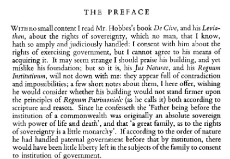
1631320536_4.mp4 (18.8 MB, Resolution:640x360 Length:00:04:11, We Call Him Father [DPRK Song English Subtitles].mp4) [play once] [loop]
![We Call Him Father [DPRK Song English Subtitles].mp4](/images/thumb/511CCB127816CF379FC675D2098352B3-19715812.png)
This semi-related to OP.
Anonymous
No.319392
1631320991_4.mp4 (22.5 MB, Resolution:640x360 Length:00:05:26, Oh, Benevolent Father 아 자애로운 어버이.mp4) [play once] [loop]

What Robert Filmer responded to in Hobbes.
Both Hobbes & Filmer however have their poltical views rooted in absolutism, that you will find in reading Jean Bodin's Six Books of a Commonwealth.
Bodin's Six Books of Commonwealth:
https://quod.lib.umich.edu/e/eebo/A16275.0001.001?c=eebo;c=eebo2;g=eebogroup;rgn=main;view=fulltext;xc=1
(will take time to load this)
I recommend the Absolutism series
https://imgur.com/a/4NgIBbs
for an easier to follow compilation & companion.
Both Hobbes & Filmer however have their poltical views rooted in absolutism, that you will find in reading Jean Bodin's Six Books of a Commonwealth.
Bodin's Six Books of Commonwealth:
https://quod.lib.umich.edu/e/eebo/A16275.0001.001?c=eebo;c=eebo2;g=eebogroup;rgn=main;view=fulltext;xc=1
(will take time to load this)
I recommend the Absolutism series
https://imgur.com/a/4NgIBbs
for an easier to follow compilation & companion.
28 replies | 49 files | 6 UUIDs | Archived
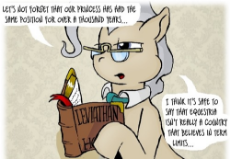







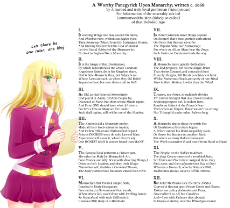
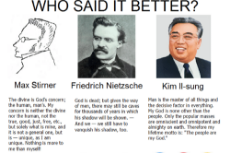
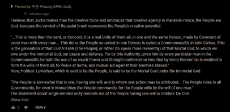


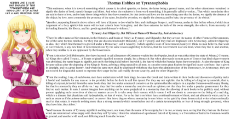
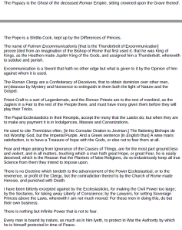
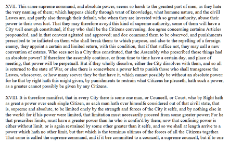
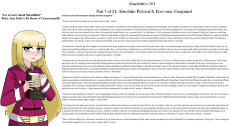

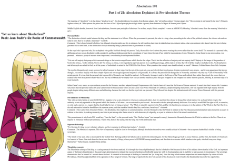
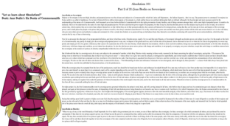
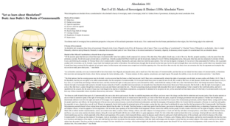
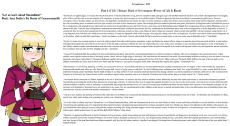

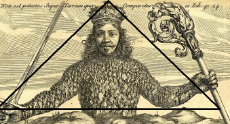
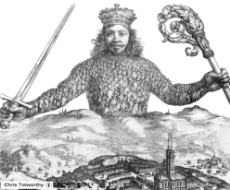

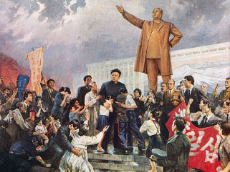


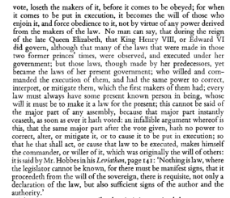

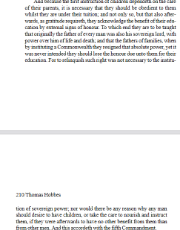

 Ex: Type :littlepip: to add Littlepip
Ex: Type :littlepip: to add Littlepip  Ex: Type :eqg-rarity: to add EqG Rarity
Ex: Type :eqg-rarity: to add EqG Rarity 